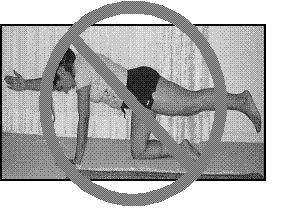Are Lumbar Stabilization Exercises Useless & Harmful?!!
Reference:Lederman E.The myth of core stability. J Bodyw Mov Ther. 2010 Jan;14(1):84-98.
IIt is amazing how a profession goes though ‘fads & trends’. PNF exercises were popular in the 70?s and Maitland mobs were all the rage in the 80?s and spray & stretch of trigger points were well accepted in the 90?s and then core stabilization became a must for everyone in the 2000?s.
Could it be that the fad of core stabilization and focus on isolated and specific muscle retraining is losing its steam in the new decade? If you doubt this, I strongly recommend you to read a critical review article called‘The myth of core stability’ published in 2010. I must admit I did go through a phase of being ?core focused? as did many other PTs, especially since I did my training in Australia. With more evidence and critical reviews it seems like we exaggerated the benefits of stabilization exercises for patients with low back pain.
The fact is MOST individuals with LBP do not require nor will they benefit from a specific core stabilization program. The clinical skill is being able to identify who will potentially benefit and who will potentially not benefit from specific pelvic floor, transverses and multifidus training.
Here are the results of this controversial critical review:
Surprising Result #1: Studies do not conclusively support the theory that tensing the trunk muscles provides any protection against LBP
Surprising Result #2: Studies have not to date shown core stability exercises to be more effective than any other forms of exercise or physical therapy
Surprising Result #3: It is well accepted that core muscles can increase intra-abdominal pressure, therefore it can be hypothesized that continuous tensing of the core muscles during daily and sports activities may excessively load the spine and in fact damage or at least irritate the spine
Surprising Result #4: Focus on core exercises may encourage excessive focus on their LBP and re-enforce the patient’s belief that there is something dangerously wrong with their back, such as ‘instability’!! (I better not bend and pick up my shoe from the floor cause I’m unstable)
Surprising Result #5: To assist in their recovery, some patients should be advised on stopping all core exercises such as Pilates, Swiss ball, abdominal drawing in, etc. but to focus on more general, global and functional exercises
Personal Comment: I do in fact agree with most of the points made in this very controversial article. Many of my patients have shown dramatic improvements based on my advice to stop either their stretching exercises or specific stabilization exercises.
Posted on: December 15, 2011
Categories: Lumbar Spine


